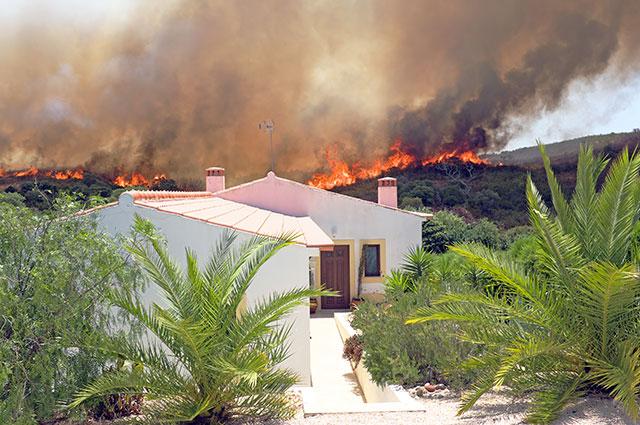-
About
- Departments & Offices
-
Academics
- Public Health
- Biomedical Sciences
- Physician Assistant
- Special Master’s (MBS)
-
Admissions & Financial Aid
- Tuition & Fees
-
Student Experience
-
- Student Resources by Program
- Academic & Student Support
- Wellness & Wellbeing
- Student Life
- Events & Traditions
-
-
Research
- Research Labs & Centers
- Tufts University-Tufts Medicine Research Enterprise
-
Local & Global Engagement
- Global Health Programs
- Community Engagement
The Psychological Toll of Wildfires
As climate change brings more natural disasters, more people will have to cope with traumatic stress

The California wildfires that have burned thousands of acres and driven hundreds of thousands of people from their homes this fall have left many residents emotionally exhausted. A woman who lost her home in the Santa Rosa fires two years ago, and just recently had to evacuate from her temporary apartment, told NPR that the stress and trauma of the recurring blazes have taxed her marriage, her work, and her health.
While wildfires and other natural disasters endanger lives and livelihoods, they also take a toll on mental health. Paul Summergrad, the Dr. Frances S. Arkin Professor and Department of Psychiatry chair at Tufts University School of Medicine, said that in the aftermath of the Indian Ocean tsunami of 2004, an Indonesian government minister reached out to the School of Medicine for assistance. The minister said their single largest need was child psychiatrists, because so many kids were traumatized by the loss of their families. “Obviously, Indonesia needed many other things for its recovery, too,” Summergrad said. “But in a lot of disasters, psychiatric and mental health services become very important.”
In 2016, the federal U.S. Global Change Research Program issued a report that predicted as climate change increases the number and severity of wildfires, hurricanes, droughts, and other natural disasters, mental health issues will continue to arise.
Summergrad talked with Tufts Now about natural disasters and how they affect mental and emotional well-being.
Department:
Psychiatry